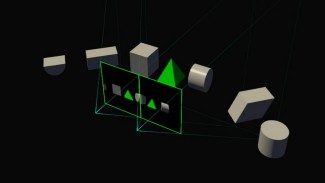Unity Technologies has announced a $181 million Series C investment led by DFJ Growth, a venture capital firm with the likes of Twitter and Tesla in their portfolio, in order to continue their dominance of the game engine market. Unity claims to have 45% of the “full feature game engine market” and even more in the mobile 3D gaming space (yes, Pokémon Go is running on Unity).

This correlates with mobile VR too; back in February, Oculus CEO Palmer Luckey said some 90% of the content available for Samsung’s Gear VR headset is built with Unity. Unity is also one of the leading engines used for desktop VR development today. Even Valve, who have their own in-house game engine, chose to develop most of their VR title The Lab using Unity.
According to sources who spoke with the New York Times, the new round of funding values the company at $1.5 billion, thanks to over 5.5 million registered developers making use of the technology. “Unity’s platform has revolutionized the game industry by allowing any size studio from Indie to Triple-A to create beautiful and compelling games and experiences and monetize them with their advertising and analytics services,” says DFJ’s Barry Schuler, who joins Unity’s board of directors. “Now Unity is poised to accelerate the advance of AR/VR with their unique ‘write once/publish many’ engine which allows studios to easily support all hardware platforms without having to attempt to choose a winner.”

Unity’s ease of use, workflow speed and platform coverage are often cited as the reasons for its success, along with its fast reaction to industry trends. Supporting the Rift as far back as Oculus’ 2012 Kickstarter, Unity established itself early as the engine of choice for VR, appealing to developers of all sizes, particularly the small independent teams that have spearheaded some of the most innovative VR experiences.
Unity hopes to make developing VR and AR content even more appealing in the coming years, and thanks to initiatives like the Unity VR Scene Editor, the company hopes to enable even those without programming knowledge will be able to create games and other experiences at a rapid pace.







